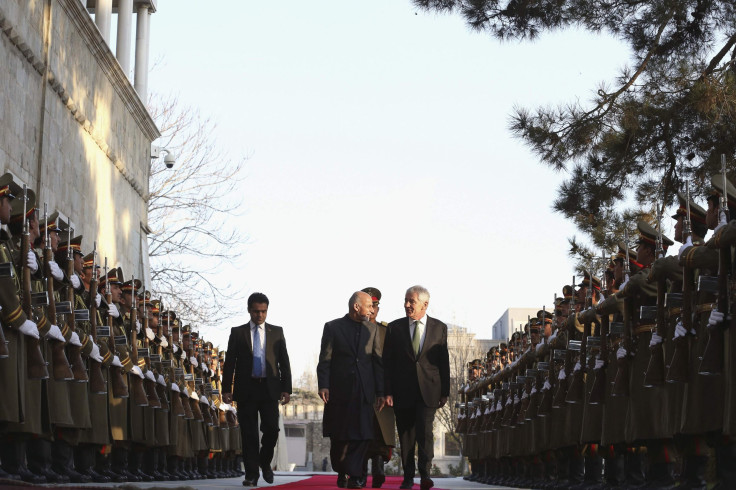Boehner Invites Afghanistan President Ghani To Address Congress

House Speaker John Boehner, R-Ohio, has extended an invitation to Afghanistan’s President Ashraf Ghani to speak to Congress next month. According to a statement from Boehner’s office, the joint session should solidify ties between the U.S. and Afghanistan.
“Afghanistan is an important friend and ally to the United States. Americans and Afghans have worked together for years on a shared mission of bringing peace and security to the region,” the speaker’s statement said. “This address presents an important opportunity to hear from the newly elected president on how the United States can continue to work together to promote our shared goals and reaffirms our commitment to the Afghan people. We look forward to welcoming President Ghani to the United States Capitol.”
The address to Congress is set for March 25, following Ghani's visit to the White House, where he will be hosted by President Barack Obama along with Afghanistan’s Chief Executive Abdullah Abdullah (Ghani's opponent in the last election, with whom he has formed a unity government). According to the AP, White House spokesman Josh Earnest, Obama and Ghani will be discussing security and economic development. Ghani is also expected to take a meeting with Secretary of State John Kerry.
“The White House was informed,” Boehner spokesman Michael Steel said, in contrast to the speaker's highly controversial invitation to Israeli Prime Minister Benjamin Netanyahu.
This will be the second time an Afghan president addresses Congress. Hamid Karzai, Ghani’s predecessor, spoke before a joint session in 2004. The visit is intended to renew relations between the two countries, which were strained under Karzai, and most recently exacerbated over reported contacts between the former president and the Taliban.
A report by the New York Times revealed Karzai’s secret contacts amid frustration from his Western backers when the former president refused to sign off on security agreements that had already been negotiated while also lobbying for the release of Taliban fighters from prison.
© Copyright IBTimes 2025. All rights reserved.






















